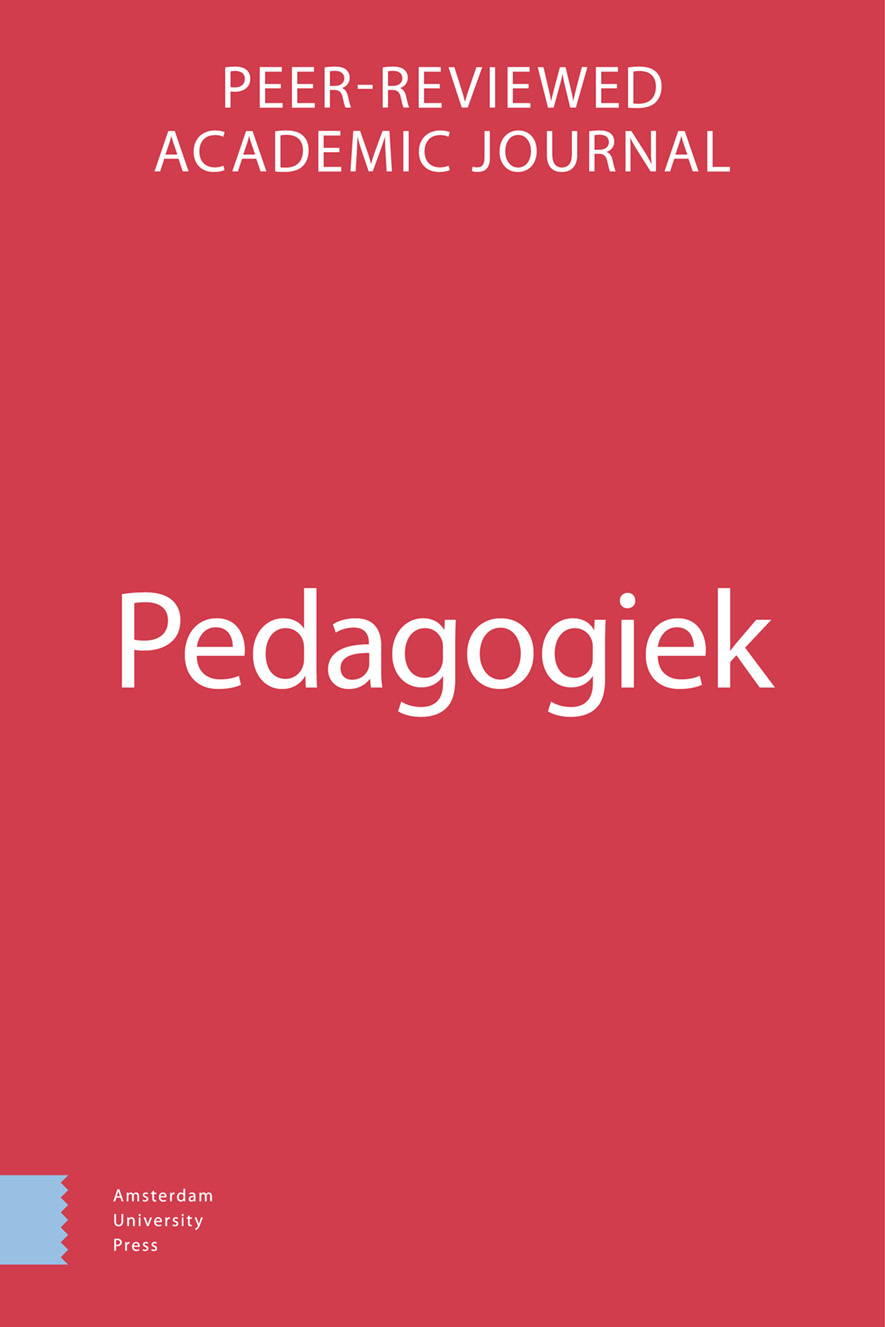-
oa Op je Positieve Gezondheid! Kinderen aan het woord over het bevorderen van gezondheid
- Amsterdam University Press
- Source: Pedagogiek, Volume 43, Issue 2/3, Dec 2023, p. 168 - 192
-
- 01 Dec 2023
Abstract
Het perspectief op gezondheid is de afgelopen jaren veranderd. Eerst werd gezondheid vooral gezien als de afwezigheid van problemen, maar tegenwoordig wordt gezondheid steeds meer gezien als het vermogen om om te gaan met de uitdagingen die je in je leven tegenkomt. Het institute for Positive Health (iPH) heeft een raamwerk voor gezondheid ontwikkeld dat Positieve Gezondheid wordt genoemd. Belangrijke aspecten van dit raamwerk zijn veerkracht, aanpassing en welzijn. Om kinderen te ondersteunen bij het uiten van hun sterke punten en behoeften, ontwikkelde iPH de Kindtool (De Jong-Witjes et al., 2022). Deze tool wordt vaak gebruikt in klinische omgevingen, scholen en ook door individuele kinderen. Wat echter ontbreekt, zijn concrete adviezen voor kinderen om hun Positieve Gezondheid te verbeteren. In dit kwalitatieve onderzoek zijn 13 focusgroepen gehouden met 76 kinderen van 10-12 jaar om hun ideeën over Positieve Gezondheid en hun suggesties om deze te verbeteren te verkennen.
De resultaten van huidig onderzoek onderschrijven dat kinderen goede gesprekspartners zijn als het om hun eigen gezondheid gaat. Bij alle dimensies van de Kindtool waren kinderen in staat ervaringen te delen en adviezen te geven. Sommige thema’s leken kinderen bezig te houden en kwamen meermaals terug. Het thema balans in een druk weekprogramma bleek belangrijk. Hoewel kinderen daar over het algemeen positief over waren, bleken zij actief bezig te zijn met overzicht en plannen. Vrienden, erbij horen en jezelf zijn bleken eveneens belangrijke thema’s. Wat betreft de strategieën om hun gezondheid te bevorderen, beschreven de kinderen zowel strategieën waar anderen bij betrokken zijn, als oplossingen die zij zelfstandig en individueel uitvoeren. De resultaten van deze studie kunnen bijdragen aan het ontwikkelen van handelingsadviezen voor kinderen waarmee zij eigen regie kunnen nemen over hun Positieve Gezondheid en hun oplossingsvaardigheden versterken. Voor leerkrachten en zorgprofessionals kunnen handelingsadviezen geformuleerd door kinderen voor kinderen het gesprek over Positieve Gezondheid faciliteren.


